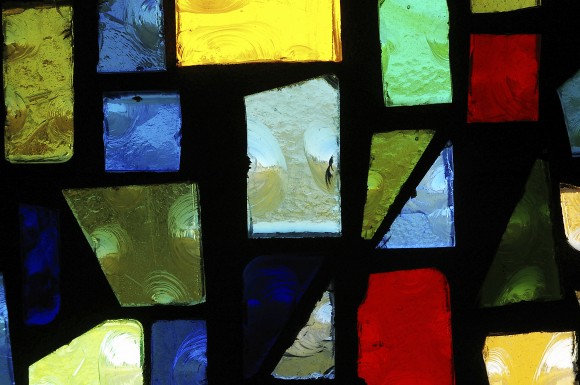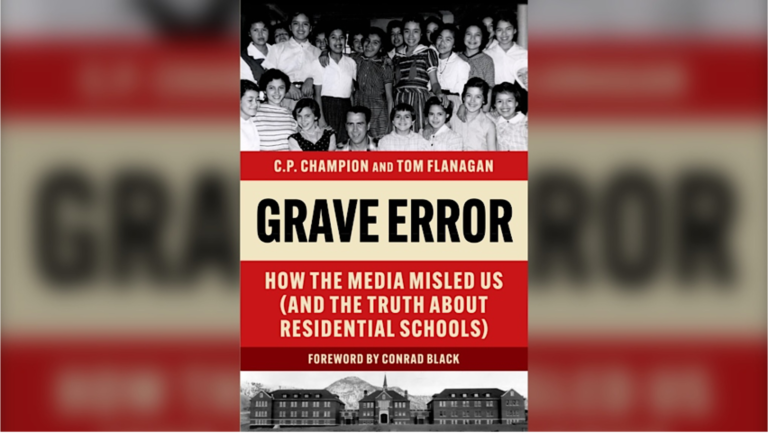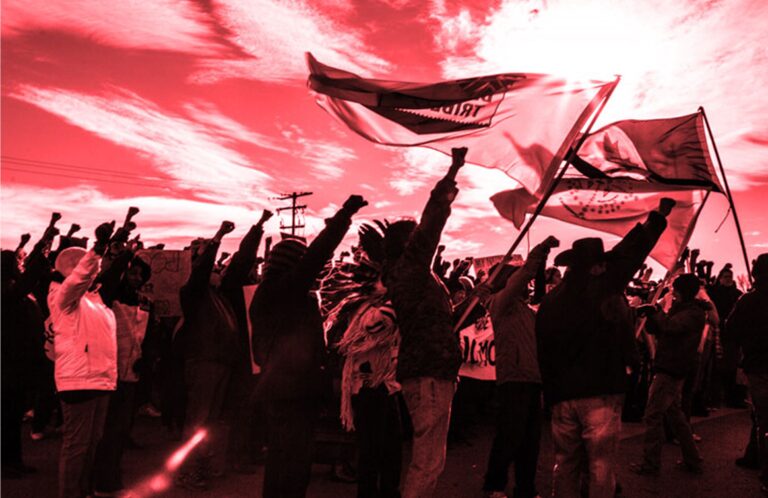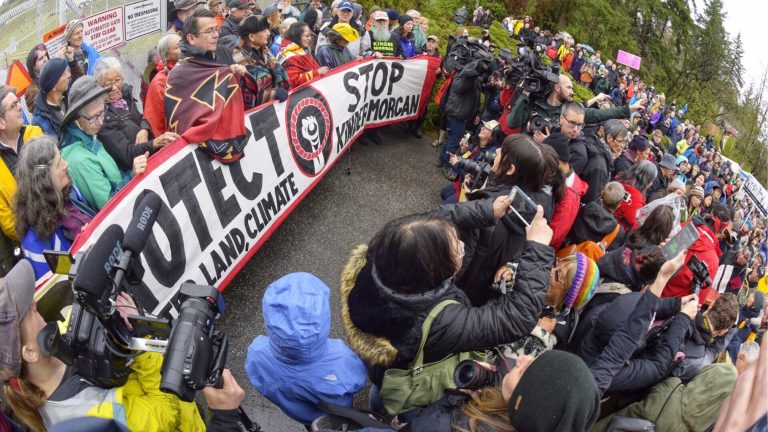At the end of a major Catholic conference several years ago, the bishop who hosted it had some definitive parting wisdom for the faithful.
“As you go from this place,” he told us, “remember that while the Commandments do call us to chastity, they first call us to charity.”
Ever since I heard those words, I have wished two things. One is that they could be imprinted into the memories and onto the tongues of every Catholic who engages in hot button social topics of the day such as abortion or gay rights. The second is that the Church’s self-declared opponents – outside and inside – could open their hearts, their minds, and their curiosity enough to understand that charity first is the true foundation of all Catholic teaching.
“Truth needs to be sought, found and expressed within the ‘economy’ of charity, but charity in its turn needs to be understood, confirmed and practiced in the light of truth,” Pope Benedict XVI says in his great 2009 encyclical Caritas in Veritate. “In this way, not only do we do a service to charity enlightened by truth, but we also help give credibility to truth, demonstrating its persuasive and authenticating power in the practical setting of social living.”
Unfortunately, the popular reflex today is to deny what the Church teaches is true and, more, ascribe malice to its very dissemination. An essential element of contemporary disagreement with Catholic thought, it seems, is demonization of its thinkers. The Church speaks as it does about homosexuality, the indictment holds, not out of fidelity to the Gospel but out of feverish homophobia, bigotry, prejudice and hate.
As Joseph Bottum, former editor of the U.S. Catholic journal First Things, noted in a much-discussed essay for Commonweal magazine this past summer, some of that attribution of ill will can be a combination of a) mere political posturing to advance the cause of gay marriage and b) cover fire for good old-fashioned Catholic bashing.
Bottum wrote:
If that’s what the same-sex marriage movement is really about—the redefinition of history as Christian oppression, the rereading of even success stories like the civil-rights movement as tales of defeating Christian evil, all for the purpose of cutting off the religious roots of Western civilization—then to hell with it.
In fact, in a spirit of charity and truth-seeking at least, Bottum did not leave his argument at “to hell with it” but, rather, developed the conservative Catholic case for the Church ceasing its opposition to gay marriage in order to focus her forces on issues of genuine suffering and injustice. While few conservative Catholics seem to have been convinced by his appeal, its sentiment was of a piece with the giddiness generated by interpretations of Pope Francis’s comments during his return to Rome from Brazil following World Youth Day 2013.
“If a person is gay and seeks God and has good will, who am I to judge?” His Holiness asked reporters rhetorically during a press scrum aboard his plane.
His remark was widely regarded, minimally, as a new “opening” to gays by the Church, and possibly even the beginning of the end of what one Associated Press wire service writer very neutrally called the “poisonous homophobia” from the Vatican.
Far from being any kind of softening of Church teaching, much less a split with his predecessor, Francis’s comments were fully consonant with pastoral documents from Rome dating back to the Congregation for the Doctrine of the Faith’s “Declaration on Certain Questions Concerning Sexual Ethics” issued in December 1975.
Indeed, a 1986 letter to Catholic bishops concerning the pastoral care of homosexual persons said explicitly:
It is deplorable that homosexual persons have been and are the object of violent malice in speech or in action. Such treatment deserves condemnation from the Church’s pastors wherever it occurs. It reveals a kind of disregard for others that endangers the most fundamental principles of a healthy society. The intrinsic dignity of each person must always be respected in word, in action and in law.
Coming when gay rights activists were emerging as among the most powerful political forces of the age and at the height of the AIDS crisis in North America, the letter employs unwaveringly charitable language in sustaining the Church’s separation of sinner and sin. It does not flinch from proclaiming its truth that homosexual behaviour is a sin. Neither does it shy from dealing with the reality that homosexual orientation is not itself a choice for which individuals can be held morally culpable. It directs Catholic bishops to look to the Church’s “wise moral tradition” and it warns against “generalizations in individual cases” when providing pastoral care and counsel for gays.
“What is at all costs to be avoided is the unfounded and demeaning assumption that the sexual behaviour of homosexual persons is always and totally compulsive and therefore inculpable,” the letter says.
What is essential is that the fundamental liberty which characterizes the human person and gives him his dignity be recognized as belonging to the homosexual person as well. … [T]he abandonment of homosexual activity will require a profound collaboration of the individual with God’s liberating grace.
It adds:
What, then, are homosexual persons to do who seek to follow the Lord? Fundamentally, they are called to enact the will of God in their life by joining whatever sufferings and difficulties they experience in virtue of their condition to the sacrifice of the Lord’s Cross. That Cross, for the believer, is a fruitful sacrifice since from that death come life and redemption. While any call to carry the cross or to understand a Christian’s suffering in this way will predictably be met with bitter ridicule by some, it should be remembered that this is the way to eternal life for all who follow Christ.
Even those tempted to indulge themselves in “bitter ridicule” of the pastoral letter’s message cannot deny that its emphasis on dignity, liberty, collaboration and respect for the individual is a call from charity to truth, not from bigotry to lies. Even a casual reading of that message shows it to be merely the long-form version of Pope Francis’s pithier, updated question: On what basis may we judge those who earnestly seek to follow God in truth and charity?
Fittingly, the long-form version was written by then cardinal Joseph Ratzinger who, of course, became Benedict XVI. Benedict was demonized throughout his pontificate as a spiteful, out of touch, conservative Catholic theologian. Pope Francis, by contrast, has been hailed as the cleansing and liberating figure who will at long last throw open the doors of the Church to all that the progressive world demands, including what many consider the rightful place of gays at her altar.
Yet, here we see them expressing a message that differs only in length and brevity, never substantively. We can look even further and see this unity of papal minds in Francis’s first encyclical, Lumen Fidei, which was written first as draft by Benedict before he retired last February.
To read Lumen Fidei – the Light of Faith – is to recognize once again how the Church’s teaching about human nature is an embodied teaching, that is, one predicated on the reality that we are bodily beings directed toward love (charity) while regularly failing through sin (untruth). Before we are sexual beings, heterosexual, homosexual or otherwise, we are persons in God’s eyes. Reaching back to the advent of Israel locates God’s connection with us through the physical senses.
“God speaks to [Abraham]; he reveals himself as a God who speaks and calls his name,” the encyclical opens.
Faith is linked to hearing. Abraham does not see God, but hears his voice. Faith thus takes on a personal aspect. God is not the god of a particular place, or a deity linked to specific sacred time, but the God of a person, the God of Abraham, Isaac and Jacob, capable of interacting with man and establishing a covenant with him. Faith is our response to a word that engages us personally, to a ‘Thou’ who calls us by name.
Through that covenant, Lumen Fidei argues, faith becomes a “remembrance of the future, memoria futuri” because while it is made in the past, its promise is fulfilled each time it is lived out in the here and now, and in all time to come. The fulfillment of the promise occurs primarily through the embodying of our lives in our biological families. Of course, families can come into being in other, non-biological ways, but the overwhelming majority are based in the fundamental procreative gifts shared by women and men.
God ties his promise to that aspect of human life which has always appeared most ‘of promise’, namely, parenthood, the begetting of new life: ‘Sarah your wife shall bear you a son, and you shall name him Isaac’ (Gen 17:19). The God who asks Abraham for complete trust reveals himself to be the source of all life.
It is through the openness to passing down of life and faith from parents to children that “God’s light shines for Israel” and, in Catholic teaching, for all humanity redeemed by His Son. The body, then, becomes the prime locus not of sexual orientation but of right orientation to God. The Church’s defining of certain sexual activities (including though by no means limited to homosexuality) as “morally disordered” is based on its understanding of the proper way we as physical beings must direct ourselves – the use of our bodies – to the God who created us. It is not about prudishness, much less squeamishness. It is about treating a gift in a way that is consonant with the love of its giver.
“Christian faith is faith in the incarnation of the Word and his bodily resurrection; it is faith in a God who is so close to us that he entered our human history,” as Lumen Fidei expresses it.
“Far from divorcing us from reality, our faith in the Son of God made man in Jesus of Nazareth enables us to grasp reality’s deepest meaning and to see how much God loves this world and is constantly guiding it towards himself.”
Atheists, agnostics, Darwinists and all others who reject the great Abrahamic faith are absolutely entitled, of course, to dismiss such “reality” as lovely, or perhaps somewhat less than lovely, creation stories and even fairy tales. They are entitled to despise the fact that such teaching still moves the hearts and is accepted as the proclamation of Truth by billions of human beings. In the name of freedom, we must accept the right of others to claim their mythologies where they find them.
What is wrong, however, is the false accusation that hatefulness, bigotry and prejudice are the motivating forces behind the proclamation of what the Church holds to be true. It is true that we Catholics can be our own worst enemies when it comes to defending ourselves from such claims. We speak or write intemperately – mea culpa, mea culpa, mea maxima culpa – or we speak when we should be listening. We invest intellectual resources in the defence of doctrine about chastity and get distracted from the necessity to proclaim it with charity. In dealing with the assaults of those who oppose us, whether on hot button topics such as gay rights or others, we can be guilty of stumbling after Joseph Bottum and crying out: “To hell with it.”
Yet, the faith itself is a constant calling back for all of us. For as Pope Francis and pope emeritus Benedict phrase it so beautifully in Lumen Fidei: “Faith transforms the whole person precisely to the extent that he or she becomes open to love.”
As the bishop at the conference reminded us, as Catholics, as Christians, as children of Israel, that is what we are always and above all else called to first.







